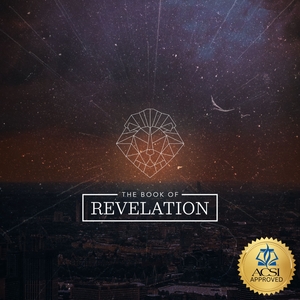In 1 Corinthians 15 Paul says the Rapture will happen at "the final trumpet." Isn't this a reference to the last of the Trumpet Judgments in Revelation? And wouldn't this mean the Rapture happens in the latter half of Tribulation?
In 1Cor 15 Paul is explaining the manner of our resurrection, sometimes called the "rapture:"
1Cor. 15:51 Behold, I tell you a mystery; we will not all sleep, but we will all be changed,
1Cor. 15:52 in a moment, in the twinkling of an eye, at the last trumpet; for the trumpet will sound, and the dead will be raised imperishable, and we will be changed.
Paul says the moment of our transformation into our new physical bodies will happen instantaneously at "the last trumpet." Since Paul refers to this trumpet as "the last" trumpet, it must be a specific trumpet and the final trumpet of a series of trumpets.
Some assume Paul was referring to the Trumpet Judgments of Revelation. In Revelation we find seven Trumpet Judgments which take place during Tribulation, including the seventh:
Rev. 11:15 Then the seventh angel sounded; and there were loud voices in heaven, saying, “The kingdom of the world has become the kingdom of our Lord and of His Christ; and He will reign forever and ever.”
Is this trumpet the same as the one Paul is describing in 1Cornithians 15? While the two descriptions sound similar, they are not the same event. The trumpet of resurreciton and the trumpet judgments are two different events, which happen at different times, though both involve the use of a trumpet. In fact, these are very different trumpets.
First, the trumpet referenced in 1Corinthians 15 is one of the trumpets traditionally blown during the Jewish feast of Rosh Hashanah (also called the Feast of Trumpets for that reason). The last trump is a well-known Jewish phrase of Paul's day referring to the final trumpet blown at this feast. Rosh Hashanah observance involves blowing a series of trumpets at the feast each year. During the ceremony, there are a series of short trumpet sounds which conclude with one, long trumpet blast called the tekiah gedolah, which means “the great trumpet blast.” This is the trumpet Paul was describing in 1Corinthians 15, and it announces the resurrection of the Church.
Paul was intimating that the feast of Rosh Hashanah pictures the Rapture of the Church. All seven feasts on the Jewish calendar picture aspects of God's redemptive plan, starting with Passover and ending with the Feast of Tabernacles. The Feast of Rosh Hashanah pictures the moment of the Church's resurrection (also called the Rapture), which is why a trumpet is blown during the feast. That tekiah gedolah is a prophetic picture of the trumpet that will blow at the Church's resurrection.
On the other hand, the trumpets of the seven Trumpet Judgments are announcement blown by angels in Heaven during the latter half of Tribulation. They are signals to warn unbelievers of impending judgment. These judgments will be the final opportunities for unbelievers on Earth in Tribulation to be saved before the final wrath of God poured out on earth in the Bowl Judgments.
How do we know these trumpets are not one Paul was referencing in 1Corinthians 15? Because the historical order of authorship for the New Testament books precludes the possibility that these are the same trumpets. Paul's first letter to Corinth refers to "the" last trumpet, and his use of the article "the" indicates Paul expected his audience to know and recognize this particular ttrumpet blast. This wasn't "some" trumpet, it was "THE" the trumpet, so Paul must be refering to a trumpet already known to his readers in the day he wrote 1Corinthians.
For that reason, we know Paul could not have meant the trumpets described in the Trumpet Judgments of Revelation, because the book of Revelation wasn't written and revealed to the Church until 40 years after Paul's death. No one in Paul's day could have known that trumpet judgments were a part of God's plan for Tribulation when Paul referred to "the" trumpet, so Paul was clearly speaking about some other trumpet. On the other hand, the final trumpet blast of Rosh Hashanah was very well known to Paul and his readers.
Therefore, at the time Paul wrote 1Corinthians, he was speaking of the final trumpet of Rosh Hashanah blown at the feast of Trumpets, and since this feast is a picture of the Rapture, it fits the context of 1Corinthians perfectly. Therefore, Paul was not referring to the Trumpet Judgments but to the feast of Trumpets.
You can read more about the relationship between the Rapture and the Feast of Trumpets by reading our article, Will the Rapture Occur on Rosh Hashanah? You may also find the following articles helpful to understanding the timing of the resurrection of the church:
Does the Rapture Occur Pre-Wrath?
Explaining the Rapture
Why Tribulation?
We also encourage you to listen to the entire Revelation study available on our website to understand the precise timing of the end times events according to scripture, including the timing of the Rapture and the various Tribulation judgments.
Scripture quotations taken from the (NASB®) New American Standard Bible®, Copyright © 1995, 2020 by The Lockman Foundation. Used by permission. All rights reserved. www.lockman.org





